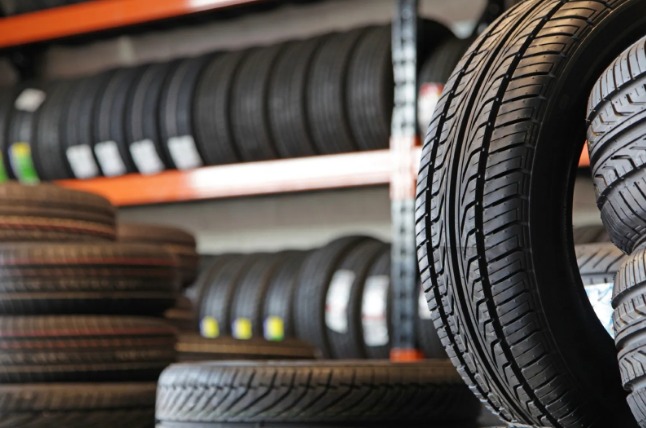The Importance of Tyre Safety in Summer

As temperatures climb during the summer months, ensuring tire safety becomes paramount for safe and enjoyable driving experiences. Your vehicle’s tires are the sole point of contact with the road, directly influencing handling, braking, and overall driving safety. This blog delves into why tire safety is particularly crucial in summer and offers practical tips to ensure your tires are in optimal condition for the season ahead.
Heat and Tire Pressure
Summer heat can cause the air inside tires to expand, leading to increased tire pressure. Over-inflated tires are more prone to blowouts, especially on hot roads. Check your tire pressure regularly (including the spare) and adjust according to the manufacturer’s recommendations.
Tread Depth and Traction
Proper tire tread depth is crucial for maintaining traction, especially in wet conditions common during summer thunderstorms. Ensure your tires have adequate tread depth (at least 2/32 of an inch) to prevent skidding and hydroplaning.
Long Drives and Tire Wear
Summer often means road trips and longer drives, putting extra stress on tires. Check for signs of wear and tear such as cracks, bulges, or uneven tread wear. Rotate your tires regularly to promote even wear and extend tire life.
Load Capacity
If you’re loading up your vehicle for summer adventures, be mindful of the tire load capacity. Exceeding the recommended weight limit can lead to tire failure. Check your vehicle’s manual for load capacity guidelines.
Regular Inspections
Before hitting the road for a summer trip, conduct a thorough tire inspection. Look for any visible damage, embedded objects, or signs of aging. Don’t forget to inspect the spare tire as well.
Proper Inflation
Properly inflated tires ensure optimal handling, fuel efficiency, and tread wear. Under-inflated tires can overheat and wear out prematurely, while over-inflated tires can reduce traction and lead to a rougher ride.
Alignment and Balancing
Have your tires professionally aligned and balanced if you notice steering wheel vibration or uneven tire wear. Proper alignment ensures vehicle stability and extends tire life.
Fuel Efficiency
Well-maintained tires contribute to better fuel efficiency by reducing rolling resistance. With gas prices typically higher in summer, maintaining proper tire inflation can save you money at the pump.
Emergency Preparedness
Carry a tire pressure gauge and know how to change a tire in case of emergencies. Ensure you have the necessary tools and a fully functional spare tire when embarking on summer road trips.
Safety First
Ultimately, tire safety is about ensuring your safety and that of your passengers. Investing time in regular tire maintenance can prevent accidents and breakdowns, providing peace of mind on the road.
Tire Rotation
Regular tire rotation is essential for even tread wear and optimal performance. Front tires tend to wear differently than rear tires due to steering and weight distribution. Rotating tires according to your vehicle manufacturer’s recommendations (usually every 6,000 to 8,000 miles) helps extend tire life and ensures balanced handling.
Avoid Overloading
During summer, it’s common to pack your vehicle with camping gear, sports equipment, or luggage for vacations. Avoid overloading your vehicle beyond its weight capacity, as this can strain tires and increase the risk of tire failure. Check your vehicle’s Gross Vehicle Weight Rating (GVWR) and adhere to load limits.
Monitor Tire Condition
Regularly inspect your tires for signs of damage, such as cuts, punctures, or sidewall cracks. Check for embedded objects like nails or stones that could cause leaks. Address any issues promptly to prevent tire failure on the road.
Check Tire Age
Tires degrade over time, regardless of tread depth. If your tires are more than six years old, have them inspected by a professional even if they appear to be in good condition. Aging tires are more susceptible to failure, especially in hot weather.
Avoid Under-Inflation
Under-inflated tires are a common cause of tire failure and increased fuel consumption. Check tire pressure regularly, especially before long drives or when carrying heavier loads. Use a reliable tire pressure gauge to ensure tires are inflated to the recommended levels.
Drive Smoothly
Aggressive driving behaviors such as hard braking, fast cornering, and rapid acceleration can accelerate tire wear. Drive smoothly and avoid sudden maneuvers to preserve tire tread and enhance overall safety.
Consider Tire Type
Summer tires are designed to perform optimally in hot weather conditions, offering better traction and handling on dry and wet roads. Consider switching to summer-specific tires if you live in an area with consistently high temperatures during the summer months.
Stay Vigilant in Hot Weather
Extreme heat can exacerbate existing tire issues and lead to tire blowouts. Pay attention to signs of tire overheating, such as unusual vibrations or bulges, especially during prolonged driving in hot weather conditions.
Prepare for Road Trips
Before embarking on a summer road trip, conduct a comprehensive vehicle inspection, including tire checks. Ensure your spare tire is in good condition and that you have the necessary tools to change a tire if needed.
Professional Inspection
If you’re unsure about the condition of your tires or notice any abnormalities, schedule a professional inspection with a qualified mechanic or tire specialist. They can provide expert advice on tire maintenance and replacement.
In conclusion, prioritizing tire safety during the summer months is essential for maintaining road safety and vehicle performance. By following the recommended tire maintenance practices outlined in this blog, you can significantly reduce the risk of accidents and breakdowns associated with tire issues. Remember, well-maintained tires not only enhance safety but also contribute to better fuel efficiency and overall driving comfort. Investing time and effort in tire care now will pay dividends in terms of peace of mind and enjoyable summer driving experiences. Stay safe on the road by making tire safety a priority this summer.
